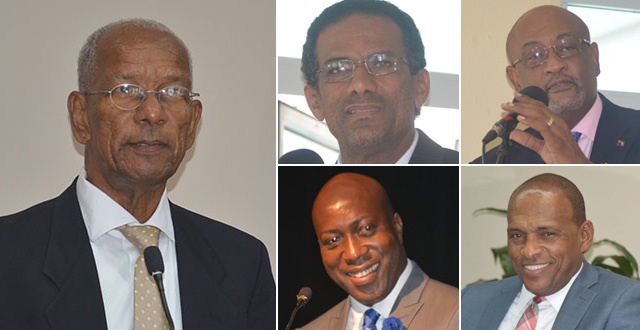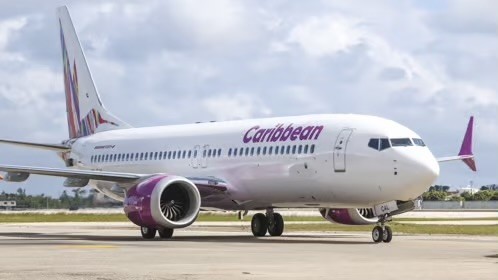
(PLTM) - Information coming out of the government's Medium Term Fiscal Plan (MTFP) for 2017-2019, shows that the government has an issue with balancing the amount of money it spends over the amount it brings in.
In the plan, which was laid on the table of the House of Assembly on Monday, January 16 by Premier and Finance Minister, Hon. Dr. D. Orlando Smith, the revenue of government continues to decline while the recurrent expenditures climb.
The plan noted that 2016 expenditure further increased with the implementation of the National Health Insurance scheme and government's $7M injection into BVI Airways to allow for direct flights between Miami and the BVI.
According to the plan, following 2014, a year with record revenue receipts, in 2015, "Revenue in 2015 reached approximately $317.6M, approximately $1M or 0.3 percent less than revenue received 2014."
However, the plan noted that once again, receipts from stamp duty late in the year drove the higher than anticipated revenue for the latter, with $12M received in other taxes. "The largest category of revenue collected at 61.9 percent was taxes on goods and services, the majority of which, namely 91.8 percent, were receipts from financial services."
Specific to revenue from the incorporation and re-registration of companies, $175.0M or 89.0 percent of taxes on goods and services were receipts from company incorporations and re-registrations in 2015, which was down from $178.1M in 2014.
Financial services receipts accounted for 56.8 percent of total central government revenue in 2015, down slightly from 57.6 percent in 2014.
"Given the additional scrutiny and international pressures placed on our financial services industry, 2015 collections retained from the financial services were only slightly less than recorded in 2014, at 1.7 percent. In 2015, collections from financial services totaled approximately $180.5M, down from $183.6M collected in 2014."
The plan pointed out that given that the number of new incorporations has been decreasing over the last three years, it is anticipated that revenue from incorporations and re-registrations will likewise decrease in coming years.
"Our efforts to expand the financial services industry into more value-added services are expected to support and provide a boost to revenue receipts going forward."
In relation to recurrent expenditure, the plan noted that it increased 10.2 percent in 2015 to $278.6M, driven by increases in employee compensation, goods and services, and transfers and subsidies.
"With all outstanding increments to civil servants paid in 2015, employee compensation increased 6.2 percent to $120.2M, while the commencement of the additional water purchase agreement increased costs for water purchase by approximately $10M, with a corresponding 17.9 percent increase in the cost of procuring goods and services."
The MTFP explains that efforts to curtail recurrent expenditure in 2013 and 2014 were impacted by specific policy decisions, resulting in significant increases in recurrent expenditure in 2015.
"With 2016 marking the implementation of the National Health Insurance (NHI) scheme in the Territory, as well as the implementation of a $7M subsidy to BVI Airways for direct flights from the United States, recurrent expenditure costs are expected to increase even further to $288.6M in 2016," the plan states.
It notes that to accommodate anticipated increases in recurrent expenditure, Ministries and departments have consistently been encouraged to prioritize programmes and activities, and work to eliminate waste and maximize use of limited resources.
Capital Investment
Meanwhile, the government said that capital investment in the medium term involves completing several projects which they have embarked on, including the completion of the Iris O'Neal Medical Centre on Virgin Gorda, the Brandywine Bay beach project, Fat Hog's Bay harbour development and continued work on roads, water and sewerage networks.
"With a combination of recurrent surpluses, existing loans and proposed new borrowing in the form of additional loans in the total amount of $23.15M for infrastructural improvements, with approval from the UK's Foreign and Commonwealth Office, the Virgin Islands will still maintain relatively low levels of debt as a percentage of nominal Gross Domestic Product (GDP) in the medium term," the plan states.
The next significant infrastructural investment on the development agenda is the expansion of the runway at the T.B. Lettsome International airport. "Economic growth in the medium to long term is undoubtedly hinged on the successful completion of the development," the plan notes.
According to the the plan, the 2016-2018 MTFP had demonstrated the affordability of the airport project given the Territory's ability to maintain recurrent surpluses and service existing and proposed new debt.
The plan assured that even with the acquisition of new debt to finance the runway expansion in the amount of $153.5M, the Virgin Islands will still maintain relatively low levels of debt as a percentage of nominal GDP in the medium term, with total public borrowing, which includes central government and risk-weighted parastatals debt, at approximately $216.1M or 19.8 percent of nominal GDP at the end of 2019.
-----
Copyright 2023 by Virgin Islands Platinum News. All rights reserved. This material may not be published, broadcast, rewritten, or redistributed.
